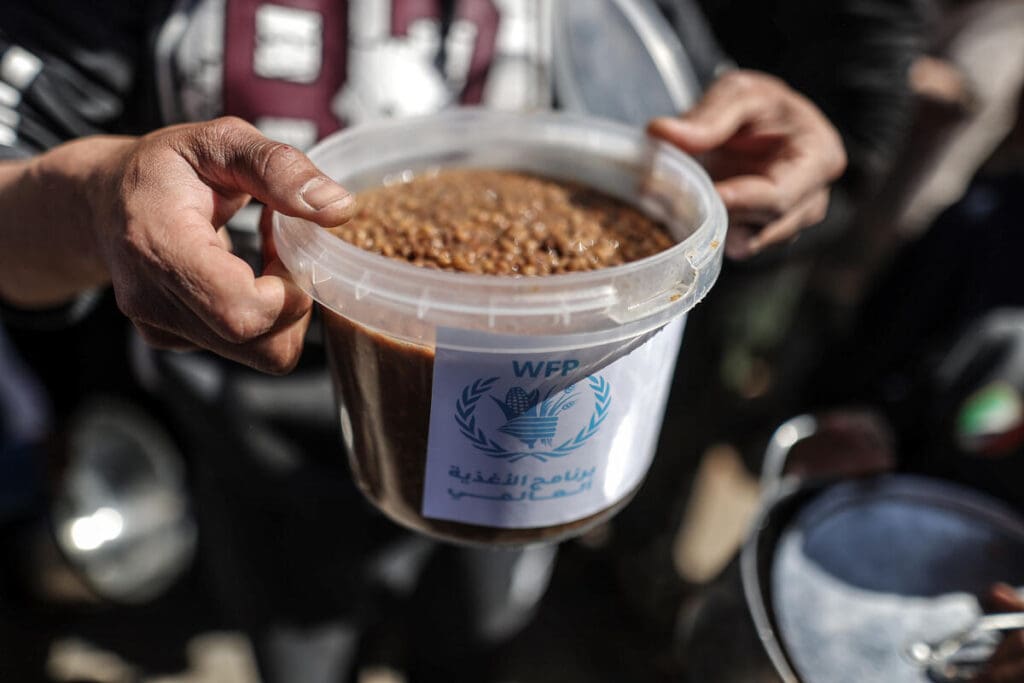WFP Food Deliveries to Northern Gaza Face Further Setbacks

ROME – Efforts by the United Nations World Food Programme (WFP) to deliver desperately needed food supplies to northern Gaza resumed today but were largely unsuccessful.
A 14-truck food convoy – the first by the U.N. World Food Programme since it paused deliveries to the north on February 20 – was turned back by the Israeli Defense Force after a three-hour wait at the Wadi Gaza checkpoint.
“Although today’s convoy did not make it to the north to provide food to the people who are starving, the U.N. World Food Programme continues to explore every possible means to do so,” said Carl Skau, the U.N. World Food Programme’s deputy executive director.
After being turned away the trucks were rerouted and later stopped by a large crowd of desperate people who looted the food, taking around 450,000 pounds, from the trucks.
Road routes are the only option to transport the large quantities of food needed to avert famine in northern Gaza.
Earlier today, with the help of the Royal Jordanian Air Force, U.N. World Food Programme food supplies for 20,000 people (13,228 pounds) were dropped in northern Gaza.
“Airdrops are a last resort and will not avert famine. We need entry points to northern Gaza that will allow us to deliver enough food for half a million people in desperate need,” Skau added.
Hunger has reached catastrophic levels in the north of Gaza where children are dying of hunger-related diseases and suffering severe levels of malnutrition. A massive relief operation requires more entry points into Gaza, including from the north, and the use of Ashdod port.
A ceasefire in Gaza is urgently needed to enable an operation of this size. With greater safety for humanitarian staff to move food and other supplies regularly throughout the Strip and with routes in from the north, the U.N. World Food Programme and its partners can prevent famine.
# # #
The United Nations World Food Programme is the 2020 Nobel Peace Prize Laureate and the world’s leading humanitarian organization, saving lives in emergencies and using food assistance to build a pathway to peace, stability and prosperity for people recovering from conflict, disasters and the impact of climate change.
Follow us on X, formerly Twitter, via @wfp_media




